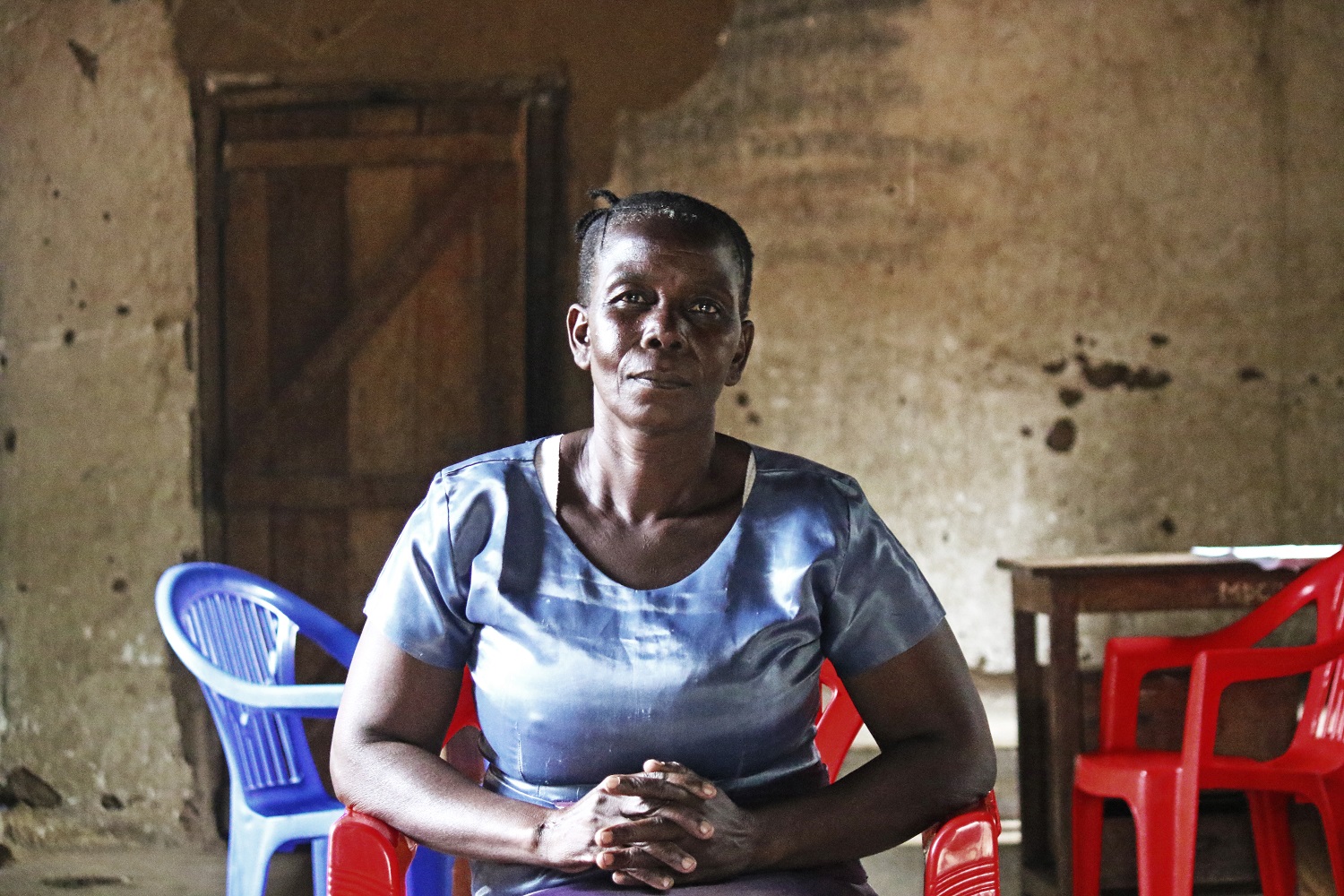
(c) Ben Small/HelpAge International
Catherine’s property rights have been threatened with violence in Magu, Tanzania
By Ben Small
Older women from around the world have spoken out about their human rights in a new report launched by HelpAge International on World Elder Abuse Awareness Day (15 June).
Entitled to the same rights focuses on older women’s right to non-discrimination and equality, and their right to freedom from violence, abuse and neglect, reflecting the themes of discussion at the forthcoming UN Open-ended Working Group on Ageing in July 2017.
Women from across 19 countries and in varying social and economic situations reported discrimination in different areas of their lives, including employment, healthcare and accessing financial services.
Stories of discrimination and abuse
“When old people go to a hospital to see a doctor, the doctor would usually say ‘the symptoms are normal for your age’,” said a 63-year-old woman from Mongolia, reflecting how medical workers pay little attention to their complaints.
Many of the 250 women consulted said that they or other older women they knew had been subjected to violence, abuse or neglect. They revealed how it happens in different ways, by varied perpetrators and in range of settings, both public and private.
“There’s no one to even see me, no one to bring me a glass of water when I need it. I am old and alone now. No one needs me,” said a participant in a group discussion in Serbia, reflecting the neglect older women often endure.
But the violence, abuse and neglect are not restricted to individual acts. The women consulted revealed how it can be systemic across society as a whole.
“The community and society [place] less value on the contributions of older women and ignore their voices and needs,” was said during a group discussion in Cambodia.
While all older women can be subjected to age and gender-based discrimination, it can be exacerbated where multiple forms of discrimination intersect. Single or widowed older women, older women with disabilities, those who live rurally, and migrant and refugee older women are especially at risk.
“My in-laws and society started to discriminate against me after the death of my husband. They took my husband’s land and property, and compelled me to leave my village,” said a 62-year-old woman from Nepal.
How can older women’s rights by protected?
The older women said they believe governments can take action to promote equality and end violence, abuse and neglect through the adoption, revision and implementation of laws and policies that protect their rights.
The consultation found that awareness is key. “To ensure there is equality for older women, the Government should provide education to the general public on rights and equality,” said a 50-year-old woman from Tanzania, while a 78-year-old woman from Kyrgyzstan added: “Train social workers on how to identify signs of violence and abuse against older people.”
The interviewees also appealed to justice and people’s humanity. “Punish the offenders irrespective of who they are,” said a 78-year-old woman from Nigeria. “Simply respect us as people and give us systems to protect our rights,” added a 58-year-old woman from Panama.
“What this report shows is that discrimination, violence, abuse and neglect are a part of the daily lives of many older women round the world and they know what governments should do to end this,” said Bridget Sleap, Senior Rights Policy Adviser at HelpAge International.
“It is critical their experience informs the debate on their rights at the UN Open-ended Working Group on Ageing in July and we will be using this report as one way to ensure this happens.”
Download the report to read more responses from the consultation and let us know your thoughts about older women’s rights in the comments section below. There are translations available in Russian and Spanish.
